Republican debate winners and losers
- Published
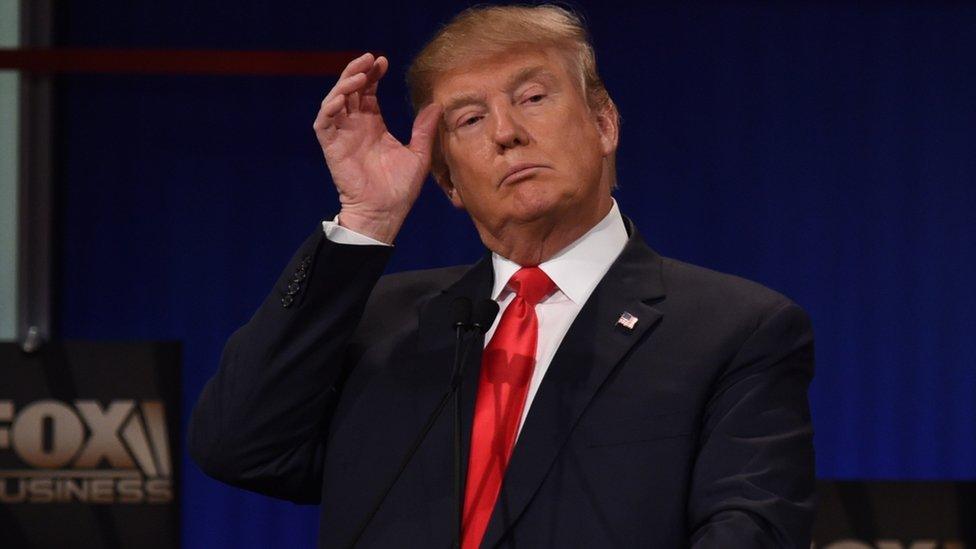
With just over two weeks before the Iowa caucuses, the campaign for the Republican nomination is reaching its climax. If Thursday night's debate is any indication, it's going to become a brawl.
One candidate - Ohio Governor John Kasich - tried to stay above the fray and focus on the economy. Another - retired surgeon Ben Carson - joked about his sleepy reputation and then did nothing to dispel it.
The rest, however, engaged in a raucous scrum that most closely resembled a wrestling battle royale, with a crowded ring and fights breaking out at every turn.
And if there's one big-takeaway from this sixth Republican contest, it's that Donald Trump is improving as a debater - and that should be a big concern for the Republican establishment.
Here are the five most noteworthy face-offs - and who ended up on top.

Cruz's Canadian birth
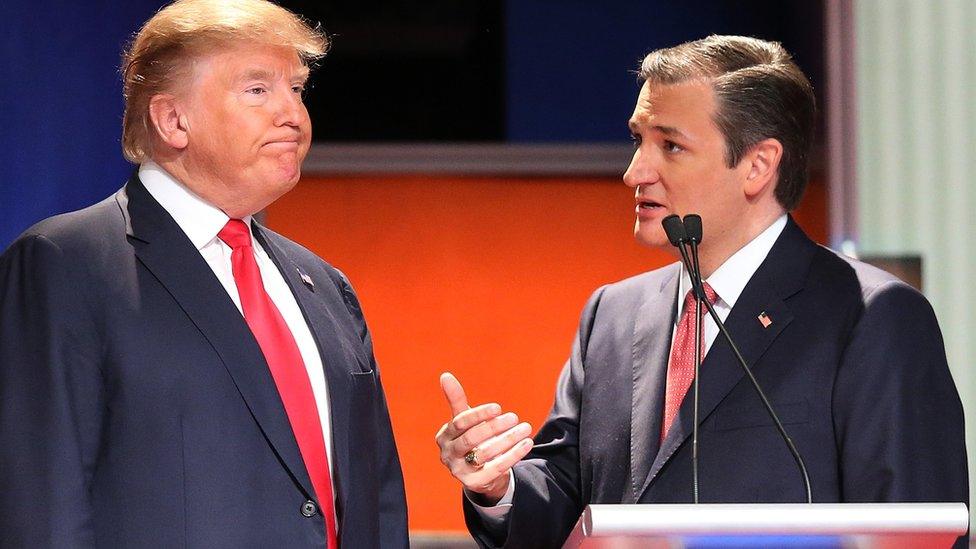
Those sweet summer days of the Cruz-Trump "bromance" seem like so long ago. Instead, the exchanges between the New York frontrunner and the man who has supplanted him in Iowa polls were the marquee matchup of the debate.
Cruz opened by defending himself against Trump's recent insinuations that his Canadian birthplace disqualified him from seeking the presidency, noting that Trump himself had said there was "no issue there". Now, he said, Trump was changing his tune because he feels threatened.
"I recognise that Donald is dismayed that his poll numbers are falling in Iowa," he said. "But the facts and the law here are really quite clear. Under longstanding US law, the child of a US citizen born abroad is a natural-born citizen." He added that there are plenty of "birther" conspiracy theories - and some might even think Trump can't run for president because his mother was born in Scotland.
"There is a big overhang," Trump shot back. "There's a big question mark on your head. And you can't do that to the party."
Left unstated was the irony of Trump, the iconoclast, worrying about the fate of a Republican Party that he has turned on its head.
Advantage: Marco Rubio. "I hate to interrupt this episode of Court TV," the Florida senator said to laughs as he interjected himself into the back-and-forth between Cruz and Trump. Cruz likely won this fight with Trump on points, but any time he spends explaining his Canadian birth is a loss for him.

Trump's 'New York values'
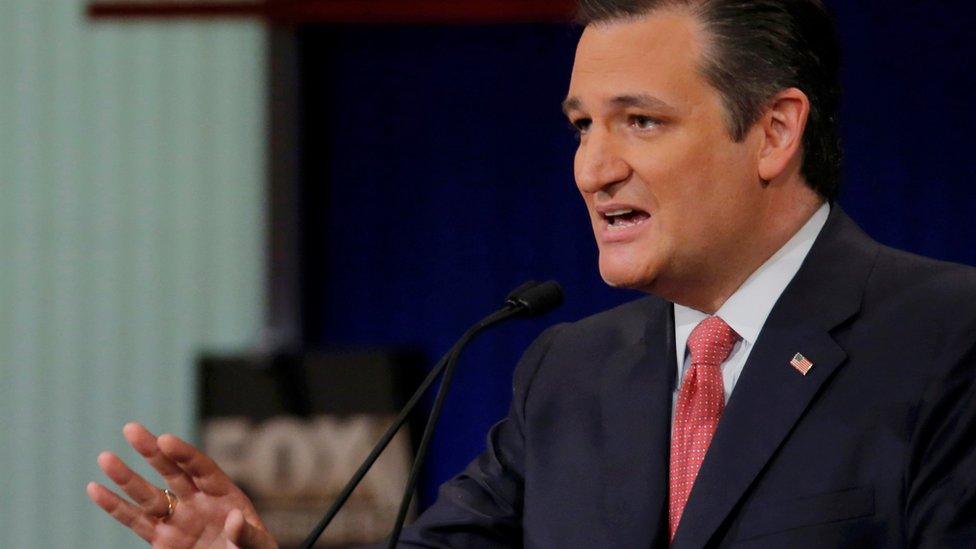
Round two of the Trump-Cruz battle came over Cruz's allegation that Trump embodied the liberal values of his New York City home.
"Everyone understands that the values in New York City are socially liberal or pro-abortion or pro-gay-marriage [and] focus around money and the media," Cruz said, concluding that "not a lot of conservatives come out of Manhattan".
After telling Cruz that noted conservative thinker William F Buckley was from Manhattan, Trump then launched into a passionate defence of his home town, citing its recovery from the 9/11 attack on the World Trade Center.
"We rebuilt downtown Manhattan, and everybody in the world watched and everybody in the world loved New York and loved New Yorkers," Trump said. "And I have to tell you, that was a very insulting statement that Ted made."
Advantage: Trump. The New York real-estate mogul may not be a polished politician, but he can play the 9/11 card with the best of them. As he spoke of the bravery following the attacks, the audience cheered - and Cruz was left applauding along with them.

Christie as Obama-lite
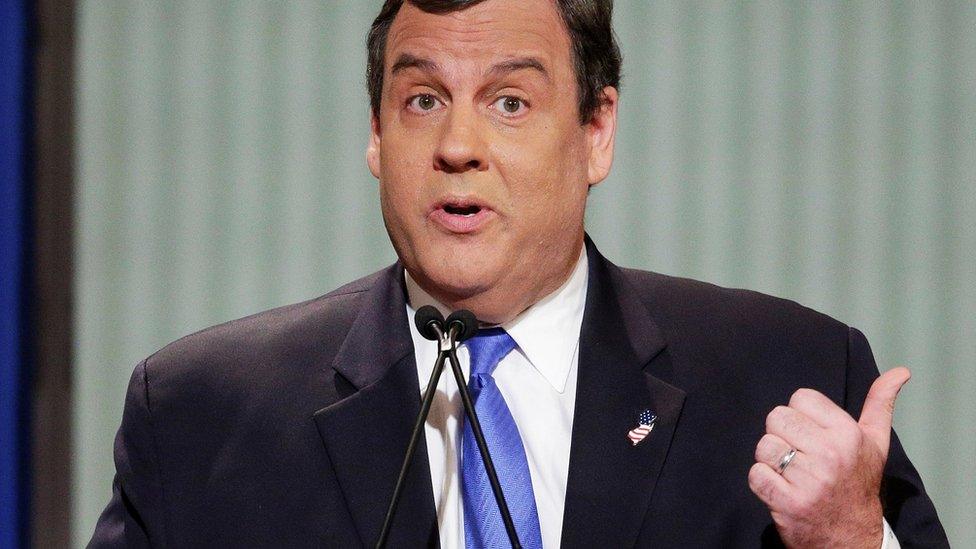
One of the more interesting side battles of the night came when Rubio went after New Jersey Governor Chris Christie for being too liberal and backing Obama's appointment of left-leaning judge Sonia Sotomayor to the US Supreme Court.
"Unfortunately, Governor Christie has endorsed many of the ideas that Barack Obama supports, whether it is Common Core [education reform] or gun control or the appointment of Sonia Sotomayor or the donation he made to Planned Parenthood," he said. "Our next president, and our Republican nominee cannot be someone who supports those positions."
Since Rubio's team has been airing television adverts attacking Christie along similar lines, he was clearly ready with a response, repeating a line Rubio used in an earlier debate when former Florida Governor Jeb Bush attacked him.
"I stood on the stage and watched Marco rather indignantly look at Governor Bush and say, someone told you that, because we're running for the same office, that criticising me will get you to that office," he said. "It appears that the same someone who has been whispering in old Marco's ear too."
He went on to deny all the accusations and pivot to attacking Rubio for being a senator who is all talk with no accountability.
Advantage: Christie - for now. He successfully parried Rubio's attack, but fact-checkers are already noting that the New Jersey governor did, in fact, support Ms Sotomayor's nomination and signed into law some tighter gun restrictions.

Trump's Muslim ban
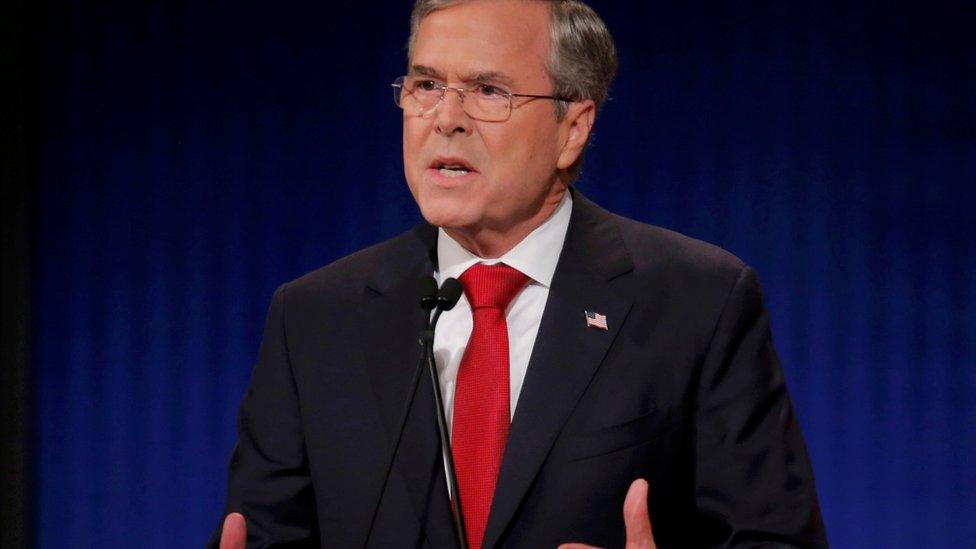
Just as in December's debate in Las Vegas, Trump stood by his call to close the US borders to all Muslims.
"We have a serious problem," he said. "And we can't be the stupid country any more. We're laughed at all over the world."
Bush chimed in with what can only be called a tepid rebuke. "I hope you reconsider this, because this policy is a policy that makes it impossible to build the coalition necessary to take out [the so-called Islamic State]," he said.
Advantage: Trump. Bush was the only candidate to challenge Trump at all on his proposal. The rest offered varying degrees of understanding while offering less sweeping alternatives. If Trump is going to be confronted on the topic, it will take more than Bush's calls to "reconsider".

Rubio's immigration reform
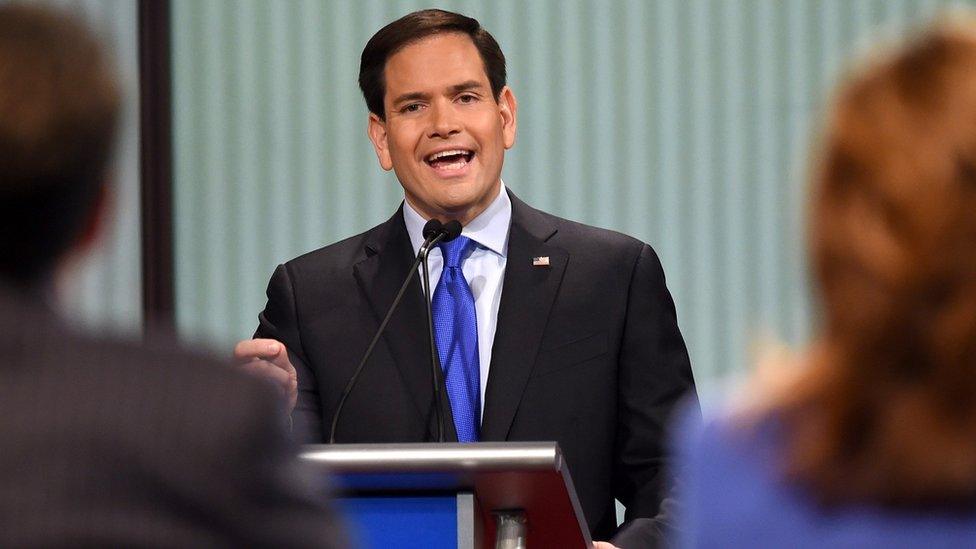
While the Cruz-Trump showdowns will likely steal the headlines tomorrow, one of the fiercest fights took place at the tail end of the debate on the issue of immigration reform.
In 2013 Rubio was part of a bipartisan team of senators who attempted to pass a law that would streamline US immigration policy and address the large number of undocumented workers already in the country. The effort has since become largely unpopular in the grass-roots conservative circles, and Rubio was asked by debate moderator Neil Cavuto why he was "so interested in opening up borders to foreigners".
Rubio replied that he had changed his position because, thanks to "a radical jihadist group", immigration had become a national security issue.
"The entire system of legal immigration must now be re-examined for security first and foremost," he said.
Cruz, who has repeatedly blasted Rubio on the issue, went on the attack, noting that "radical Islamic terrorism was not invented 24 months ago".
Rubio shot back that Cruz had supported expanding the number of US visas in the past and that he has a history of changing his positions on immigration as well as trade, defence spending and ethanol subsidies - an issue closely followed by many in corn-growing Iowa.
"I appreciate you're dumping your opposition research folder on the debate stage," Cruz replied, and then tried to tear into Rubio on immigration reform again before being cut off by the moderator.
Advantage: Cruz. Rubio launched a fierce counterattack, but he can't cover the fact that he his position on immigration just a few years ago is now decidedly out of step with where his party currently is.